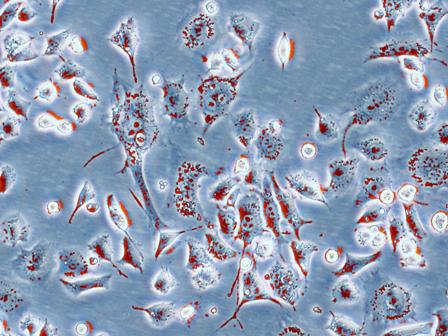
Oral cancer is the sixth most common cancer in the world. At least 30,000 new cases of oral and oropharyngeal cancers are diagnosed each year. Incidence rates are greater than 2:1 male-to-female for oral cavity cancers, and the rates are greatest in men over age 40.
Mouth cancer can affect any part of the mouth, including the tongue and lips. The most common symptoms are having a sore or ulcer for more than three weeks. You should see your dentist or doctor if you have any symptoms in your mouth that are unusual. The outlook for people with mouth cancer is very good if it is diagnosed early.
Most oral cancers look very similar under the microscope and are called "squamous cell" carcinomas. These are malignant and tend to spread rapidly.
Stages of Oral Cancer
Stage I. The cancer is no more than 2 centimeters and has not spread to lymph nodes in the area
Stage II. The cancer is more than 2 centimeters but less than 4 centimeters and has not spread to lymph nodes in the area
Stage III. Either of the following may be true - the cancer is more than 4 centimeters; the cancer is any size but has spread to only one lymph node on the same side of the neck as the cancer.
Stage IV. Any of the following may be true - the cancer has spread to tissues around the lip or oral cavity; the lymph nodes in the area may or may not contain cancer; the cancer is any size and has spread to more than one lymph node on the same side of the neck as the cancer, to lymph nodes on one or both sides of the neck, or to any lymph node that measures more than 6 centimeters.
Recurrent. The cancer has returned after it has been treated. It may come back in the lip and oral cavity or in another part of the body.
Causes mouth cancer
A cancerous (malignant) tumour starts from one abnormal cell. The exact reason why a cell becomes cancerous is unclear. Certain risk factors increase the chance that mouth cancer may develop. These include:
Signs of oral cancer
The most common symptoms of mouth cancer are:
Other symptoms include:
All of these symptoms can be due to other conditions, so tests are needed to confirm the diagnosis.
Treatment for Oral Cancer
Treatment options which may be considered include Radiotherapy, Surgery and Chemotherapy. The treatment advised for each case usually depends on various factors such as the exact site and extent of the cancer and your general health.
You should have a full discussion with a specialist who knows your case. They will be able to give the pros and cons, likely success rate, possible side-effects and other details about the possible treatment options for your type of cancer.
There is a good chance of a cure if it is treated in the early stages. Many cases are diagnosed at an early stage. This is because early mouth cancers are more easily detected than cancers deeper inside the body.
In some cases, treatment aims to control the cancer. If a cure is not realistic, with treatment it is often possible to limit the growth or spread of the cancer so that it progresses less rapidly. This may keep you free of symptoms for some time.
In some cases, treatment aims to ease symptoms. For example, if a cancer is advanced then you may require painkillers or other treatments to help keep you free of pain or other symptoms. Some treatments may be used to reduce the size of a cancer, which may ease symptoms such as pain or difficulty with swallowing.
Leave a Comment